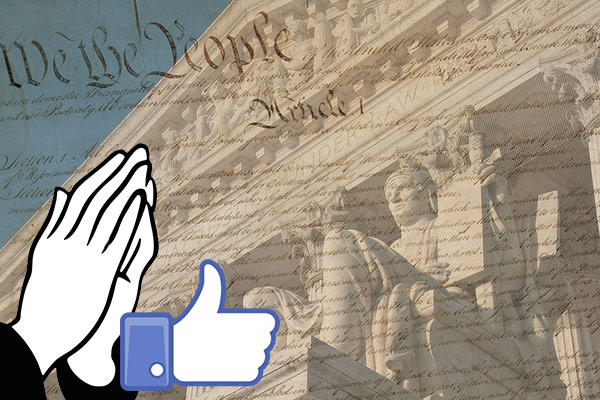
This Monday the Supreme Court ruled that opening a city council or other public board meeting with a prayer is Constitutional.
They ruled that judges do not have the power to censor religious speech just because the prayers may reflect the dominant faith, namely Christianity. The ruling, by a 5-to-4 vote, divided the court’s more conservative members from its liberal ones. Greece, New York had been opening their meeting with a usually Christian prayer. Two women sued the city because they believed it was an unconstitutional establishment of religion. Their claim was denied however with this ruling.
The Supreme Court upheld a similar claim in 1983 stating that an opening prayer in the Nebraska Legislature was not against the Constitution and agreed that prayer is simply part of the nation’s traditions, not a constitutional violation.
The two sides on Monday disagreed about whether town board meetings, which include not only lawmakers and spectators but also citizens seeking to do business with the government, are meaningfully different from legislative sessions. The decision states that the 1st Amendment’s ban on an “establishment of religion” does not necessitate that “legislative prayer may be addressed only to a generic God.” The First Amendment prohibits establishing a religious practice and forcing others to participate. As long as the government allows each person praying to address their own God or gods everything is alright.
Religious rituals are prevalent in all layers of government. One of the first actions the U.S. House and Senate are tasked with is the selection of a chaplain. As long as there is no government endorsement of religion, the practice is considered constitutional. In fact, in 1774 there was a prayer at the first session of the Continental Congress. Praying before a government meeting is deeply rooted in American history. Legislative prayer is a practice that was accepted by the founders of the government and has withstood the critical scrutiny of time and political change.
Many people believe that this ruling does not change the way praying before a meeting has been viewed historically. Justice Kennedy stated that legislative prayers may have sectarian content and can be addressed to a specific God, instead of only a generic God. Otherwise, legislatures would have to censor prayers, and it would be difficult to impossible for courts to decide when prayers become so sectarian as to violate the constitution.
